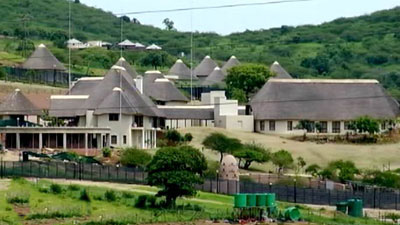
OpEds

Nkandla: Constitutional Court asserts its moral authority
DAVID BILCHITZ
The Nkandla judgment issued by the Constitutional Court last week was one of those historic moments of joy in which the whole South African community exhaled together in a sense of relief, but also elation.
In its 20th year of operation, it became evident to us all that the Constitution, the document that binds our whole society together collectively, works. The Constitutional Court, the highest court and institution tasked with interpreting the constitution and adjudicating upon its disputes, in a mere 53 pages, asserted its moral authority and affirmed all that is best about our country.
The Court told us that those who occupy public office are in a position of trust and must exercise their duties with great integrity. Far from undermining the democratic organs of our society, the Court emphasised their importance. The President, Chief Justice Mogoeng Mogoeng wrote poetically that it is “a constitutional being by design, a national pathfinder, the quintessential commander-in-chief of State affairs and the personification of this nation’s constitutional project”.
In so describing his role, the court was clearly articulating the high moral standards required of his office.
The National Assembly is the representative organ which the Chief Justice described as the “mouthpiece, the eyes and service-delivery-ensuring machinery of the people”. Instead of being simply the lapdog of the executive, the court was setting the standard for how our parliament should operate. In a sense, it was a call to duty, a plea for this key institution in our society to do its job.
The legislature and executive were put to the test when non-security upgrades were made to the President’s private homestead in Nkandla. And, unfortunately, the court found they did not meet the standards required of them.
In the face of this failure, it was necessary to recognise that the watchdog institution of the public – the Public Protector – needed enhanced powers so as effectively to exercise her functions. The court thus fortified this key institution and enabled her office to issue binding orders which could only be overturned if challenged in court.
The judgment thus articulated a very clear set of functions and roles that different institutions must play. The court of course was the major arbiter of these disputes and so enhanced its own reputation and key functions in the process.
Indeed, when the case was heard on February 9, 2016, I left my office at Constitution Hill to watch the sea of protesters in red (the EFF) together with a small group in blue (the DA) in very good spirits peacefully protesting for the President “to pay back the money”. It was as if the Constitutional Court had become the focus of attention with all parties placing their trust in this august institution to come up with a just solution.
That is constitutional democracy at work and it really demonstrates that we have come a long way since 1994. Parties from opposite sides of the spectrum could peacefully converge in protest and respect for a key constitutional institution.
The ANC and the President have also importantly recognised the power of the court to resolve this dispute and accepted the judgment, despite its harsh criticism of their behaviour in the Nkandla matter.
Let us recognise how remarkable and important that is. In the 1950s, the apartheid government refused to recognise the right of courts to overturn laws of Parliament even when they were passed according to a blatantly unlawful procedure.
All sorts of machinations were employed to achieve the warped ends of the government at the time: to remove coloured people from the common voters roll. More recently, Hungary and now Poland which became democracies around the time that we did in South Africa, have sought to clip the wings of their Constitutional Courts which placed constraints on totalitarian behaviour by their democratic branches.
The health of our constitutional democracy can be measured by the strength of our institutions and the respect they afford each other. By that measure, last week’s judgment is momentous and the reaction to it indicates we are in relatively good shape.
That is no reason for citizens to rest on their laurels. Constitutional democracy is precious and can easily be undermined: we need to remain vigilant and ensure that the ideals we committed to collectively in 1996 are upheld by all the vital institutions that make up the fabric of our political community.
David Bilchitz is a professor of Fundamental Rights and Constitutional Law at the University of Johannesburg; Director of SAIFAC and Secretary-General of the International Association of Constitutional Law.




